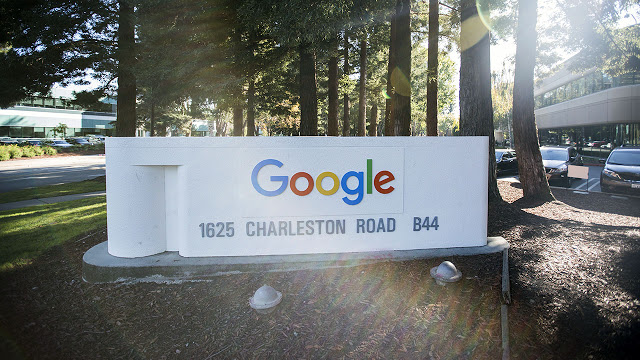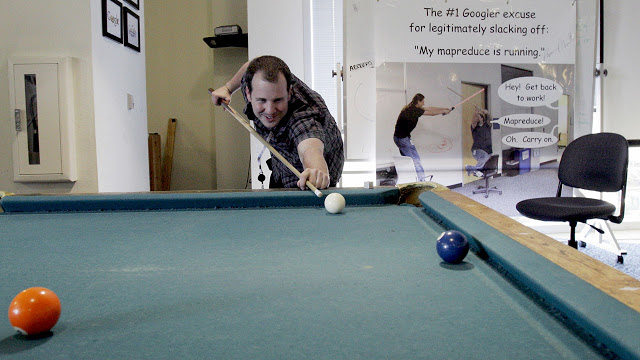A Google employee has filed a case before the California Superior Court alleging that the tech giant is restricting the rights of the employees, including the right to speak, the right to work and the right to whistle-blow. The lawsuit alleges that despite the company motto being “Don’t Be Evil”, the employee alleges that the confidentiality agreements, policies and practices by the government are illegal. Although Google is famous for the creed, Alphabet has changed the wording in their employee code of conduct to “do the right thing.”
Google employees are not allowed to put on paper or discuss, even with other Google employees, about any illegal conduct or practices by the company, to prevent the use of the statements in case of a litigation. Google does not allow its employees to discuss details of their salaries and what kind of work they did for Google, after leaving the company. This makes it harder for Google employees to find subsequent employers. The employees cannot speak to the government, lawyers or the press about wrongdoings by Google.
 |
| Google is considered one of the best places to work at. This is the Google headquarters in Mountain View, California . Image: REUTERS/Stephen Lam |
Google employees cannot discuss with their friends or family about the performance of their superiors. Employees are not allowed to write a fiction novel about a person working at a tech company in Silicon Valley. Google continues to restrict the rights of even former employees, who are still party to the confidentiality agreements even after leaving the company. Google employees allegedly cannot use the skills, knowledge and experience acquired over the course of their employment with Google.
The suit is filed by an anonymous current employee of Google, identified by the placeholder name “John Doe”, according to a report in Quartz. The employee alleges that Brian Katz, Google’s Director of Global Investigations, Intelligence & Protective Services sent out a false email saying that a particular employee was fired from the company for leaking information to the press. Although the email does not mention Doe, Google employees have associated the email with Doe. The employee says that he was made a scapegoat by Google, to discourage other employees from leaking information.
The California Labour Code, does not allow confidentiality agreements to cover salaries. Google allegedly violates this law as employees are not allowed to discuss their salaries, the salaries of other employees, or help other employees get a better salary. Another violation of the California Labour Code is that Google prevents employees from speaking about the work conditions. Any potential violation by the company cannot be reported to law enforcement agents or to the government, another violation of the California Labour Code.
The laws protect employees who disclose trade secrets or confidential information in some specific cases. Employees are allowed to reveal confidential information and trade secrets to government employees or lawyers, as part of an investigation into potential wrongdoing by the company. In these circumstances, employees who disclose the information are protected from criminal or civil liabilities. However, Google does not disclose this information in its confidentiality agreement, and instead prevents employees from disclosing confidential information to anyone, including government officials and attorneys.
 |
| At the Google headquarters in Mountain View, CA, an employee takes a break to play a game of pool Image: REUTERS/Erin Siegal |
The lawsuit further alleges that the illegal confidentiality agreement has a very broad scope, and considers too many things as “confidential.” Confidential information is defined by the company as any information about the company that is not known to the public. Employees have to agree that all the data they generate belongs to Google. Employers have to agree to face termination and lawsuits for leaking out confidential information.
The confidentiality agreement itself is confidential, so revealing that there are illegal clauses in the agreement is a violation of the agreement. The confidentiality agreement breaches the California Labour Code as confidentiality agreements cannot include causes that the company knows are illegal to enforce. The California’s Unfair Competition Law allows employees to report securities law violation to lawyers representing shareholders. Google’s confidentiality agreement specifically disallows employees to provide any information or evidence to lawyers representing shareholders on potential securities law violations.
Employees are allowed to speak to the press by Google only after authorisation by corporate communications. Employees are discouraged from sharing details of their work, opinions or snippets of information related to Google, anywhere on the internet, even if the information is not confidential. Only employees authorised to share such information as a part of their jobs, are allowed to post information related to Google on the internet.
Information about how Google works, what it is working on, or future plans are all considered confidential information and cannot be disclosed publicly. The salary of the employee, who he works for, and their performance are all confidential. The highly restrictive confidential agreement means that even some of the information that is publicly known is considered confidential information within Google.
A vast majority of Google employees cannot talk about Google at all. Only some employees authorised to speak with the press, partners, or any employee outside Google. Additionally, authorised Google Employers can only mention the facts available on the social media accounts of the tech giant, or from the corporate blog Google maintains. Any speech or post that damages the reputation of Google can potentially lead to a termination of employment.
 |
| Attendees play a game of foosball during the Google I/O 2016 developers conference in Mountain View, California image: REUTERS/Stephen Lam |
Workers cannot even raise concerns over illegal conduct at Google. The “You Said What?” training program discourages workers from posting any form of content that concludes or appears to conclude illegal activity by another employee. “Illegal”, “negligent”, “violates the law” and “liable” are some of the banned words and phrases, and Google goes so far as to say employees must avoid statements about Google that convey any legal meaning.
The employee further alleges that all these illegal provisions of the confidentiality agreement is aggressively enforced by the company. Google uses a range of tactics, including training programs, investigations, spies, confessions, warnings and threats. The Stop Leaks program encourages employees to report inadvertent leaks themselves, when someone they trusted with some information has betrayed that trust.
Any leaks on the internet can be instantly reported to the investigative team through a Stop Leaks Chrome extension. The program encourages employees to expose co-workers by filing “suspicious activity reports” on other employees. The program allegedly deters employees from asking questions or showing interest in another employee’s project. The sleuths track down and investigate every report or leak.
The lawsuit further alleges that Google has “saving clauses” in its confidentiality agreement that is designed to reduce the liability of Google. A clause for example says nothing in the confidentiality agreement is intended to limit the rights of employees to discuss their working conditions and wages with co-workers, or report illegal activities to authorities. The intent of Google here is allegedly contradictory to the actual text in the confidentiality agreement.
Google employees are required to waive their right to seek a class-wide relief, which means that employees cannot get together and sue the company over the illegal practices. The employee, Doe wants to bring Google to book for enforcing a confidentiality agreement that it knows to be illegal, for restricting employees from talking about their jobs, for taking illegal steps to prevent whistleblowing, for various prohibitions that violate the labour code, and demands a Jury Trial.
The text of the lawsuit is available at web site of the legal representatives, Baker Curtis & Schwartz P.C.










